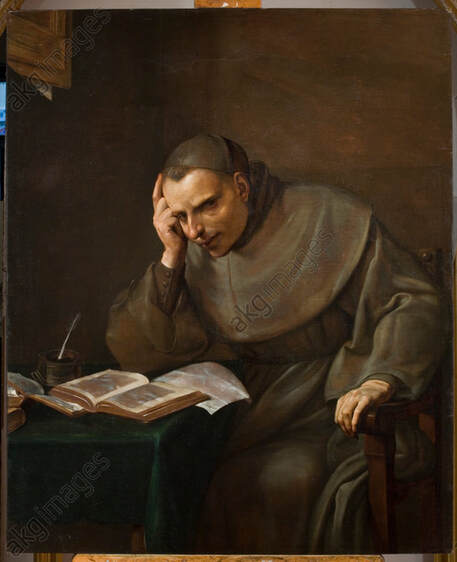|
Wordgenius sourced the word, pronounced hak-SEE-ə-dee, and referenced Scotus. It stems from the medieval Latin, haecceitas, which comes from the Latin haec, the feminine form of hic, meaning “this.” The word hic is spoken during consecration of the wine. See the video in the post titled, “Separation.” As a tutor, I know that each child has haecceity, this-ness, and cannot be constrained by categories. Public school tried to constrain one of my students who is a genius. He is happier in homeschooling. Haecceity is a deeply philosophical concept attributed to Scottish Catholic priest and university professor John Duns Scotus (1265/66–1308). He defined it as a non-qualitative property of a substance or thing that is responsible for its individuation and identity, such as a particular person’s unique identity. Scotus is also where the term “dunces” originated. His opponents equated Duns’ followers, who argued against Renaissance humanism, to dullards incapable of scholarship. [Modern humanism excludes God altogether.] When I asked my genius-student what part of a person cannot be created by another person, he said, “Personality.” We were discussing humanoids, which fascinate him. A 1962 science fiction film, The Creation of the Humanoids, which I recommend, posits that the memory of a personality is all that can be placed in a humanoid. Painting, attributed to Guido Reni (1575–1642) or Baldassarre Francheschini (1611-1690), called il Volterrano, oil on canvas, 122 × 100 cm. Owner Galleria Corsini, Florence, Italy.
2 Comments
Josef Ketzer
11/11/2021 11:25:38 am
Something new learned!
Reply
11/11/2021 12:18:12 pm
wordgenius sends me email every day and vocabulary is added to lesson plans, Joe
Reply
Leave a Reply. |
Categories
All
Archives
July 2024
|

 RSS Feed
RSS Feed